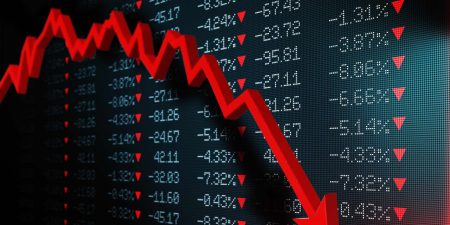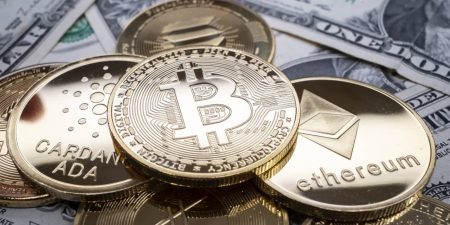Most economists are expecting a recession to hit the U.S. in the next 12 months and company earnings growth to become stagnant in 2023, but Goldman Sachs is much more optimistic.
While economists polled by the Wall Street Journal forecast a 54% chance that the U.S. would see a recession in the next 12 months, Goldman Sachs recently lowered the chance of it happening to 20% from 25%.
Read:Goldman chief economist sees reduced chance of recession and dismisses inverted-yield-curve worries
Jan Hatzius, the firm’s chief economist, cited the still strong labor market and a rebound in real disposable personal income growth as reasons. Meanwhile, “we’re actually seeing less of a drag on the roll from tighter monetary policy,” Hatzius said in a panel held by Goldman Sachs on Thursday.
Hatzius also said the U.S. inflation is likely to continue to head down without requiring a recession.
Inflation has already declined significantly so far without a recession, Hatzius noted. The annual rate of consumer price index increase decelerated to 3% in June from over 9% a year ago.
Hatzius also expects to see continued deceleration in sectors such as used cars, rent, and some labor-sensitive parts in services.
In addition, some emerging market economies, such as Brazil, Chile, Poland and Hungary, which tightened their monetary policy more and faster than the U.S., have all seen a significant deceleration of inflation in recent months, noted Hatzius. “I think that bodes pretty well for the US and other advanced economies as well,” he said.
Goldman Sachs is also more optimistic about U.S. companies earnings than the market consensus, which expects a high-single-digit percentage decline in second-quarter earnings, said Sharmin Mossavar-Rahmani, the firm’s head of the investment strategy group.
For the 10% of U.S. companies that have already reported their second-quarter results, their earnings per share grew an average of 10%. “We don’t think that pace will continue. We’re expecting somewhere around maybe down 1% to 2%. That’s going to be driven by the energy sector, given the big drop in energy and crude oil prices,” said Mossavar-Rahmani on the panel.
For 2023, Goldman Sachs expects earnings to rise 4% to 6%, while the market consensus is about 0.5%.
U.S. versus China?
In terms of China, Mossavar-Rahmani said the country’s economy is going to face significant headwinds. “It will affect countries that significantly depend on China for exports,” Mossavar-Rahmani said.
The major pillars of growth in the Chinese economy, such as property sector, infrastructure, investment and exports, are no longer viable, noted Mossavar-Rahmani. The country also faces great policy uncertainty, she added.
Still, Mossavar-Rahmani said she doesn’t expect the headwinds facing Chinese economy to have a material impact on U.S. companies’ earnings.
“If you think about S&P 500 companies, or broadly let’s say the Russell 1000, the actual exposure of US companies to emerging markets in aggregate, is around 10%… in fact, it’s not that big,” Mossavar-Rahmani said.
“So if you take that for S&P earnings, and then take that portion for China specifically, it’s not going to have a material impact on the US. It’s going to have a much greater impact in Europe,” said Mossavar-Rahmani.
Mossavar-Rahmani said they are overweight on U.S. equities and underweight on emerging markets.
Also see: Get ready for the China stock comeback, says veteran investor Mark Mobius
U.S. stocks traded mixed on Thursday, with the Dow Jones Industrial Average
DJIA,
up 0.6%, while the S&P 500
SPX,
and the Nasdaq Composite
COMP,
declined 0.6% and 1.8%, respectively.
Read the full article here















